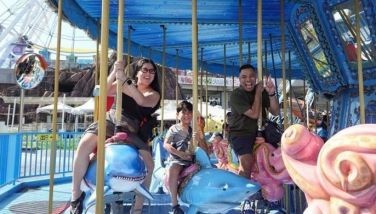The end of the world as we know it
On Dec. 21 of this year, a cycle ends on the Mayan Calendar, and some people swear this means that the end of the world is imminent.
Should we believe them, sell all our belongings and move to higher ground? Yes.
Just kidding. The Mayans prepared for the apocalypse like they prepared for the collapse of their civilization. Humanity does not have a date with doomsday just yet.
I mean, we’ve heard Armageddon calls so many times before. Google: Harold Camping, Joseph Smith, and William Miller. Old white guys who've prophesied the end of days, only to disappoint their flocks.
It’s just silly, if you think about it. Many of us believe in “God’s Plan” — that’s great — but to imagine God with a planner? Like, “Jesus is busy on the 20th, can we schedule the death of humanity on the 21st?”
No, the universe doesn’t need a timetable to destroy us. Human life will probably end on a random day, completely out of the blue. It’ll just happen, like a fart.
We could get hit by a gamma-ray burst, a dark nebula, or a wave of radiation from the explosion of hypergiant star.
Our planet is a little dot swimming in a vast expanse of unknown universe. We have no control over what’s out there, and can do nothing more than scream for help.
But thinking of how powerless we are amongst the cosmos makes me appreciate the power we do have: to shape the Earth; to change ourselves and the way we deal with our surroundings.
We can treat each other better. We can fix systems that make people poor. We can turn joy into suffering, be heroes instead of cowards, love instead of hate, and rebuild what we destroy.
See, it doesn’t matter when the world will end. What matters is that we make every day the end of the world as we know it.
Starting now, let's change little things for the better every day. Life will cease to be what it is, and inch closer to being what it should be.
* * *
Follow me at http://twitter.com/PepeDiokno
















